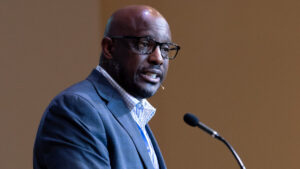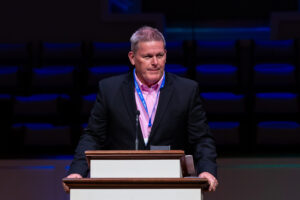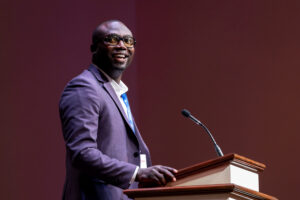One portion of Webster’s definition of “learn” is “to master”, or “mastery of.” To have mastery is to have full command of a subject. It is to have a consummate skill or knowledge of the subject. In the Asian arts of self-defense such as karate, the lead teacher has earned the title of Master. This title signifies he knows more of and about the skills of the art being practiced than any other person in his dojo (school).
One who has mastery over something is considered an artist of great and exemplary skill. It is no accident the word skill keeps appearing in the exegesis of this definition. Skill is an applied ability. The only way to know your level of skill is to apply it or put it into practice, to apply what you have learned. Application not only brings about behavioral or life changes. Application is life-change.
Think about that statement. If someone is applying a truth or principle that he has learned, he is changing the way he practices or perceives it. The first time you sat in the driver’s seat of a car and drove away you were actually applying what you had learned about driving. You were no longer confined to being a passenger. You had taken the necessary steps to bring about change.
Someone had to show you how to drive. Your first time out may not have been the most graceful, yet you were willing to apply what you had learned. From that point forward, you practiced those skills increasing your ability and improving those learned skills.
Though we have a supernatural edge, Christian education must follow the same natural laws of learning. We must not only give our learners facts, information, and material, we must equip them with wisdom to transform and mature them. You do not learn to drive a car by listening to a lecture on facts, figures, and the history of cars. Facts, figures, and history do not teach you how to drive.
The “how-to” presents the skills you need to drive. In the how-to process, you acquire the wisdom for transformation from passenger to driver. Second, there must be some physical action that allows you to interact with the car (practice) and demonstrate your newly acquired knowledge, wisdom, and skills. This is application.
Often in churches, we teach the facts, figures, and history of scripture yet never move to the ever-important life-changing how-to. The definition for “teach” and for the Greek word, didasko includes “The act of causing someone to learn. to learn is to gain mastery of. When we fail to give someone the how-to, opportunities to apply, what are we causing them to master? Are we perhaps creating masters of trivia? Unfortunately, many people walk out of churches each week without any true learning. There is no life change.
Whether you are a pastor, teacher, congregant, or parent will you, right now, identify your next step to creating application of scripture learned for you and those in your circle of influence? Write me and tell me of your decision to apply.






